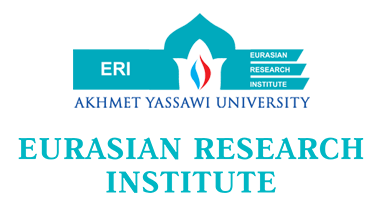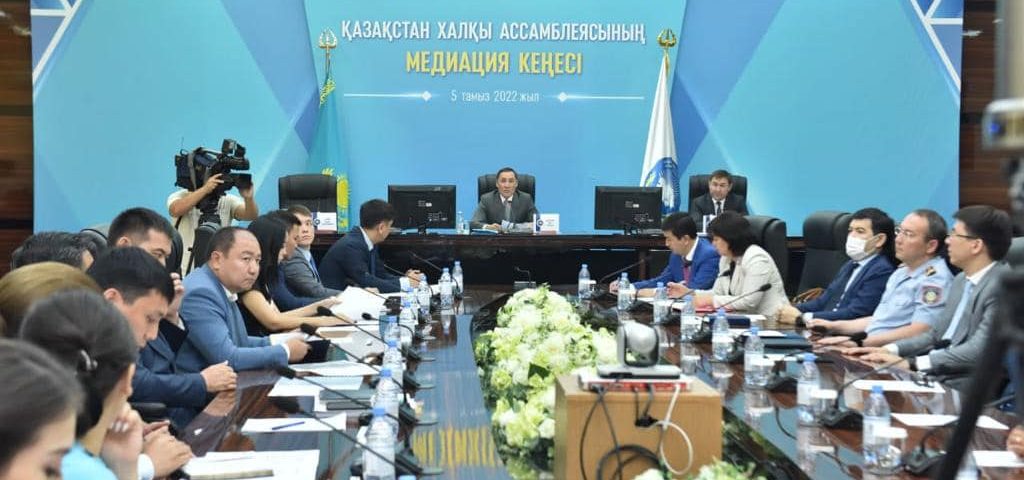The turbulence of a broader Eurasian – and Central Asian – regional geopolitics characterized by the presence of two regional, and perhaps even international, behemoths exemplified by the Russian Federation and the People’s Republic of China (PRC) has always been considered as a prevalent issue for the actors concerned. To this very end, Kazakhstan has played a significant and proactive role in the world of mediation of international disputes. Hence, it might be interesting to have a brief look at how and why Kazakhstan has accumulated international prestige as one of the vanguards of mediation in the international community.
As a landlocked country, Kazakhstan’s approach to mediation primarily focuses on two aspects of its foreign policy: its multi-vector policy and its proactivity in international institutions. In short, Kazakhstan’s multi-vector foreign policy is an attempt at obtaining a positive balance in foreign relations among all the actors involved, yet predominantly with a focus on major powers, hence the emphasis on ‘multi’ in the multi-vector policy. The core logic here is to boost its popularity as a guarantor and provider of peace and stability in the region capable of providing a relatively neutral platform for dialogue [Vanderhill et al., 2020].
As for international proactivity, Kazakhstan’s First President Nursultan Nazarbayev sought to pursue an active role in international diplomacy in the immediate aftermath of independence by coming up with the idea of a Conference on Interaction and Confidence-Building in Asia (CICA) – an inter-governmental forum aimed at enhancing cooperation and promoting peace and security in Asia – on October 5 1992, which however, came about later in 1999 [Cornell and Starr, 2020]. Nazarbayev went further by participating in the Organization for Security and Cooperation in Europe (OSCE) eventually becoming the first post-Soviet state to chair the organization in 2010. In addition, Kazakhstan managed to acquire a non-permanent seat at the United Nations Security Council (UNSC) and ended up serving on the Council between 2017 and 2019. There are a multitude of other organizations, forums, dialogues, and regional economic and diplomatic integration frameworks with Kazakhstan on board that are worth mentioning due to them serving as platforms for dialogue between associated members. Among those are the Organization of Turkic States (OTS), Commonwealth of Independent States (CIS), Shanghai Cooperation Organization (SCO), NATO’s Partnership for Peace Programme (PfP), Eurasian Economic Union (EAEU) and others. Those platforms allow Kazakhstan to take proactive initiatives toward conflict mediation via its image-building process as a non-biased side that pursues maintaining stability [Cornell and Starr, 2020].
One of the first instances of Kazakhstan taking the initiative in the field of international mediation took place back in late 1991 when President Nazarbayev along with the then President of Russia Boris Yeltsin pursued mediation vis-a-vis the conflict between Armenia and Azerbaijan [Oxford Analytica, 2024]. Further, during its presidency at the OSCE in 2010 Kazakhstan intervened to attenuate the critical situation in Kyrgyzstan where its support in transporting the ousted President of Kyrgyzstan Kurmanbek Bakiyev out of the country helped reduce the associated tensions [Marat, 2010].
Given its great familiarity with the issues concerning Nuclear Disarmament and Nuclear Non-Proliferation Kazakhstan played a pivotal role in ensuring the settlement of the Iranian Nuclear Programme issue. The Iranian Nuclear Programme commenced in the 1950s following the decree of Shah Reza Pahlavi. However, this programme started gaining considerable international attention during the First Gulf War in the 1980s and in the aftermath of the US launching its ‘War on Terror’. The P5+1 negotiation group was established in 2006 comprising Russia, the U.K., France, China, and Germany with the goal of negotiating with Iran on the potential settlements regarding the concerns of the international community expressed towards its Nuclear Programme. Over the course of negotiations, Kazakhstan hosted two rounds of negotiations, which together with another round of negotiations hosted in Istanbul came as a breakthrough in negotiations and ended with signing the Joint Plan, which in turn, stipulated the process of alleviation of sanctions in exchange for some concessions from Iran such as putting the limit on the concentration of Uranium and freezing some construction works [Astana Times, 2016].
The role of Kazakhstan as a mediator mostly spilled over into its own region concerning the difficulties associated with the Central Asian Water Rights issues. In summary, Kazakhstan sought to reduce the water disputes in Central Asia over the construction of the massive dam in Rogun in Tajikistan, which could potentially have reduced the flow of water to downstream countries, including Uzbekistan which expressed major concerns. In addition to holding a series of bilateral meetings between the sides concerned, including the one between President Nazarbayev and the Former President of Uzbekistan Islam Karimov, Kazakhstan sent its Former Foreign Minister Erlan Idrissov to both Uzbekistan and Tajikistan to negotiate the settlement of the issue, who urged both countries to pay respect to international norms stating that both upstream and downstream countries should have equal access to the shared water reserves [Weitz, 2013].
Kazakhstan has also attempted to play its part during the Annexation of Crimea in 2014 when it offered to become a bridge of negotiations between Russia and Ukraine. Nazarbayev’s call to the German Chancellor at the time Angela Merkel where he ‘expressed Kazakhstan’s readiness to make – if needed – its constructive contribution to working out compromise solutions towards peacefully normalizing the situation in Ukraine’ is exemplary in this regard [UNHCR, 2014]. Merkel has expressed Germany’s interest in holding a four-way summit on Ukraine scheduled for January 15 in Astana, the capital of Kazakhstan, which however did not take place [RadioLiberty, 2015]. The same happened later in 2022 at the onset of the Russia-Ukraine war when the President of Kazakhstan Kassym-Jomart Tokayev urged both sides to reach an agreement through negotiations. President Tokayev also mentioned that Kazakhstan can step forward as a mediator if needed [Ministry of Foreign Affairs of the Republic of Kazakhstan, 2022].
Kazakhstan followed the same approach in 2015-2016 when facing the dispute between Russia and Türkiye – a by-product of the Russian jet downed by Türkiye over the Turkish-Syrian border in 2015 and a part of the much bigger Syrian conflict. Kazakhstan sought to facilitate the negotiations between the two sides by offering the host talks on the Syrian dispute. In 2016, Russia and Türkiye agreed to hold peace talks in Astana to discuss and agree on establishing the de-escalation zones in Syria so that they can contain the existing and prevent any future possible damage to the relations between each other along the lines of the broader Syrian conflict. Throughout the period of 7 years since the start of the first ‘Astana Talks’ in January 2017 titled ‘The International Meeting on Syrian Settlement in Astana’, Astana hosted 20 meetings comprising the parties involved. Nevertheless, in 2023, Astana announced the decision to stop hosting the talks to an unexpected surprise from its Russian counterparts [RadioLiberty, 2023].
All combined, Kazakhstan’s role in international conflict mediation has been focused predominantly on achieving, if not regional, then broader Eurasian geopolitical stability, which in turn, represents its own abilities to maintain regional balance. Kazakhstan utilizes its profile and identity as an international mediator in a way that secures its sovereignty by adding yet another layer of goodwill and recognition of Kazakhstan’s international profile as a neutral actor. In turn, it sends signals to regional and international powers about the unbiased and neutral character of Kazakhstan and hence a suitable place for a dispute negotiation. Kazakhstan mainly achieves the following its multi-vector policy aimed at preserving cooperative relations with everybody as well as its proactivity in the various international organizations. Given Kazakhstan’s long-standing image-building as an international mediator, it can perhaps, act as a mediating agent in the future and current conflict, including the Russia-Ukraine war.
References:
Astana Times (2016). Kazakhstan’s contribution to settlement of Iranian nuclear programme issue. Retrieved from https://astanatimes.com/2016/05/kazakhstans-contribution-to-settlement-of-iranian-nuclear-programme-issue/. Accessed on 07.12.2024.
Cornell, Svante and Starr, Frederick (2020). Kazakhstan’s role in international mediation under First President Nursultan Nazarbayev. Institute for Security & Development Policy (November): 1-83.
Marat, Erica (2010). Kazakhstan’s dual role in Kyrgyzstan’s politics. Retrieved from https://jamestown.org/kazakhstans-dual-role-in-kyrgyzstans-politics/. Accessed on 10.12.2024.
Ministry of Foreign Affairs of the Republic of Kazakhstan (2022). President Tokayev urges Russia and Ukraine to reach agreement through negotiations, says Kazakhstan ready to provide mediation, if needed. Retrieved from https://www.gov.kz/memleket/entities/mfa/press/news/details/334985?lang=en. Accessed on 10.12.2024.
Oxford Analytica (2024). Armenia-Azerbaijan conflict over Karabakh is settled. Emerald Expert Briefings (oxan-db).
Radio Liberty (2015). Prospects for January 15 Ukraine summit in doubt. Retrieved from https://www.rferl.org/a/ukraine-kazakh-summit-doubt/26777756.html. Accessed on 09.12.2024.
Radio Liberty (2023). Kazakhstan abruptly announces it will no longer host Syria talks. Retrieved from https://www.rferl.org/a/kazakhstan-ends-syria-peace-talks-surprise/32469409.html. Accessed on 08.12.2024.
UNHCR (2014). Kazakhstan responds to Ukraine Crisis. Retrieved from https://webarchive.archive.unhcr.org/20230528114653/https://www.refworld.org/docid/5332b98b4.html. Accessed on 09.12.2024.
Vanderhill, Rachel, Joireman, Sandra and Tulepbayeva, Roza (2020). Between the bear and the dragon: Multivectorism in Kazakhstan as a model strategy for secondary powers. International Affairs 96 (4) (2020): 975-993.
Weitz, Richard (2013). Explaining Kazakhstan’s mediation mission. Retrieved from https://www.cacianalyst.org/publications/analytical-articles/item/12721-explaining-kazakhstans-mediation-mission.html. Accessed on 08.12.2024.
Note: The views expressed in this blog are the author’s own and do not necessarily reflect the Institute’s editorial policy.

